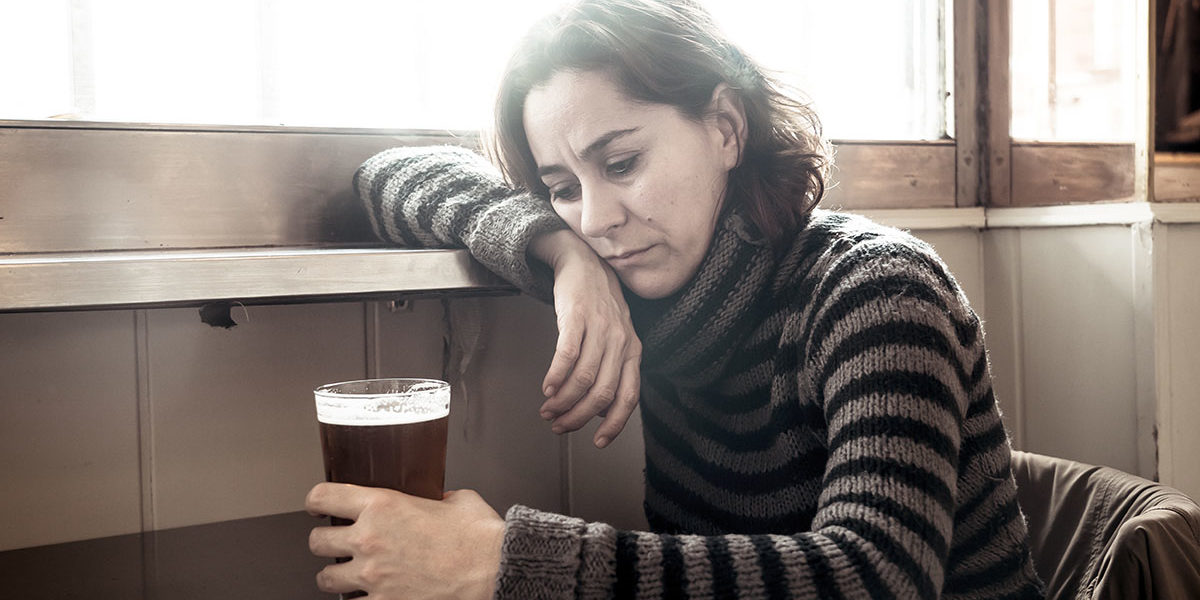Many individuals who struggle with alcohol abuse also deal with mental health issues. While everyone has times in their lives when they feel sad, worried, or lonely, some people experience persistent periods of sadness known as depression. Furthermore, according to the National Institute of Mental Health, about 7% of adults in the U.S. experienced a major depressive episode in the last year. The most common symptoms of depression include a loss of interest in daily activities, problems sleeping, lack of energy, and issues with concentration.
Nearly half of all people who experience problems with substance abuse will also be diagnosed with a mental health disorder. This is referred to as a “co-occurring disorder.” Mental health issues can contribute to substance abuse issues and vice versa. Understanding the connection between alcohol and depression can help you make the right decisions for your health and seek treatment at an addiction treatment center if necessary.
The Connection Between Alcohol and Depression
The effects of depression can be severe. An individual struggling with depression can experience feelings of hopelessness or a lack of energy that makes accomplishing daily tasks difficult. Some people turn to drugs or alcohol to cope with these feelings and find that they soon become dependent on these substances.
Alcohol can also contribute to these feelings of depression. It is a depressant, which means that it slows down your body’s responses, including your concentration and coordination. Some people turn to alcohol to cope with depression because, in small doses, it might blunt negative feelings. However, it’s very easy to drink enough alcohol to feel negative physical effects. And alcohol is an addictive substance, where your body will eventually need more and more to feel the same effects.
Some signs that you are struggling with alcohol abuse include:
- Spending a significant amount of time drinking or recovering from drinking
- Failure to complete daily responsibilities
- Cravings for alcohol when you are not drinking
- Continuing to drink despite negative physical or psychological consequences, such as more frequent depressive episodes
- Damage to relationships due to drinking
- Risky behavior during or after drinking, such as driving
- Withdrawal symptoms when you stop drinking, like headaches, nausea, or trouble sleeping
If any of the above apply to you, you will benefit from the help of an addiction treatment center.
Alcohol and Your Mental Health
Many people with co-occurring disorders never seek treatment. However, attempting to detox from alcohol alone can be dangerous. For those who struggle with both alcohol and depression, the withdrawal symptoms from alcohol detox can include severe depressive episodes, and the temptation to relapse can be overwhelming. Yet in a professional addiction treatment center, you’ll have access to around-the-clock care and necessary medical interventions.
Crossroads Maine offers care for co-occurring mental health issues and substance use disorder. Their program for co-occurring disorders is designed to help you heal from both depression and alcohol abuse at the same time. If you are feeling stuck in a cycle of addiction, find hope and healing at Crossroads Maine.
Treatment for Alcohol and Depression
If you’re struggling with alcohol and depression, you can find help at a professional treatment center. At Crossroads Maine, we offer both residential and outpatient treatment for substance abuse and co-occurring mental health disorders. The most effective treatment programs help you heal in both body and mind, which is why we incorporate comprehensive care into all of our treatment programs. Every individual in our care receives a personalized treatment plan, and our experienced therapists can help you understand how depression has affected your use of alcohol. You’ll learn healthy coping skills and begin to rebuild your life in our comfortable, secure facility. Contact Crossroads today at 877.978.1667 and find hope for your future.


















